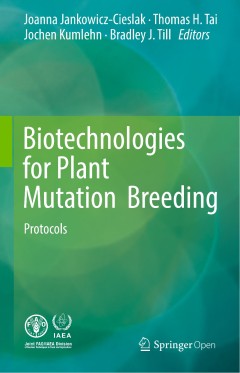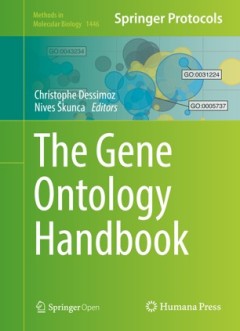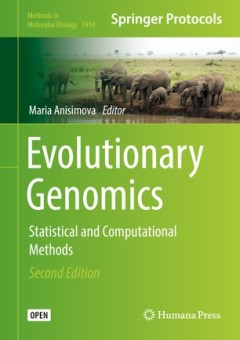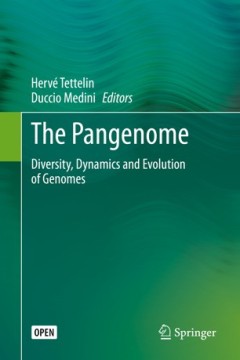Filter by

Biotechnologies for plant mutation breeding : protocols
This book offers 19 detailed protocols on the use of induced mutations in crop breeding and functional genomics studies, which cover topics including chemical and physical mutagenesis, phenotypic screening methods, traditional TILLING and TILLING by sequencing, doubled haploidy, targeted genome editing, and low-cost methods for the molecular characterization of mutant plants that are suitable f…
- Edition
- -
- ISBN/ISSN
- 9783319450216
- Collation
- xx, 340p. : ill.
- Series Title
- -
- Call Number
- 631.52 BIO b

The gene ontology handbook
This book provides a practical and self-contained overview of the Gene Ontology (GO), the leading project to organize biological knowledge on genes and their products across genomic resources. Written for biologists and bioinformaticians, it covers the state-of-the-art of how GO annotations are made, how they are evaluated, and what sort of analyses can and cannot be done with the GO. In the sp…
- Edition
- -
- ISBN/ISSN
- 9781493937431
- Collation
- xii, 305p. : ill.
- Series Title
- -
- Call Number
- 572.80285 GEN g

Evolutionary genomics : statistical and computational methods
This open access book addresses the challenge of analyzing and understanding the evolutionary dynamics of complex biological systems at the genomic level, and elaborates on some promising strategies that would bring us closer to uncovering of the vital relationships between genotype and phenotype. After a few educational primers, the book continues with sections on sequence homology and alignme…
- Edition
- second edition
- ISBN/ISSN
- 9781493990740
- Collation
- xvii, 780p. : ill.
- Series Title
- -
- Call Number
- 572.838 EVO e

Data and text processing for health and life sciences
This open access book is a step-by-step introduction on how shell scripting can help solve many of the data processing tasks that Health and Life specialists face everyday with minimal software dependencies. The examples presented in the book show how simple command line tools can be used and combined to retrieve data and text from web resources, to filter and mine literature, and to explore t…
- Edition
- -
- ISBN/ISSN
- 9783030138455
- Collation
- xv, 98p. : ill.
- Series Title
- -
- Call Number
- 006.312 COU d

The pangenome : diversity, dynamics and evolution of genomes
This open access book offers the first comprehensive account of the pan-genome concept and its manifold implications. The realization that the genetic repertoire of a biological species always encompasses more than the genome of each individual is one of the earliest examples of big data in biology that opened biology to the unbounded. The study of genetic variation observed within a species…
- Edition
- -
- ISBN/ISSN
- 9783030382810
- Collation
- xiv, 307p. : ill.
- Series Title
- -
- Call Number
- 572.86 PAN p
 Computer Science, Information & General Works
Computer Science, Information & General Works  Philosophy & Psychology
Philosophy & Psychology  Religion
Religion  Social Sciences
Social Sciences  Language
Language  Pure Science
Pure Science  Applied Sciences
Applied Sciences  Art & Recreation
Art & Recreation  Literature
Literature  History & Geography
History & Geography